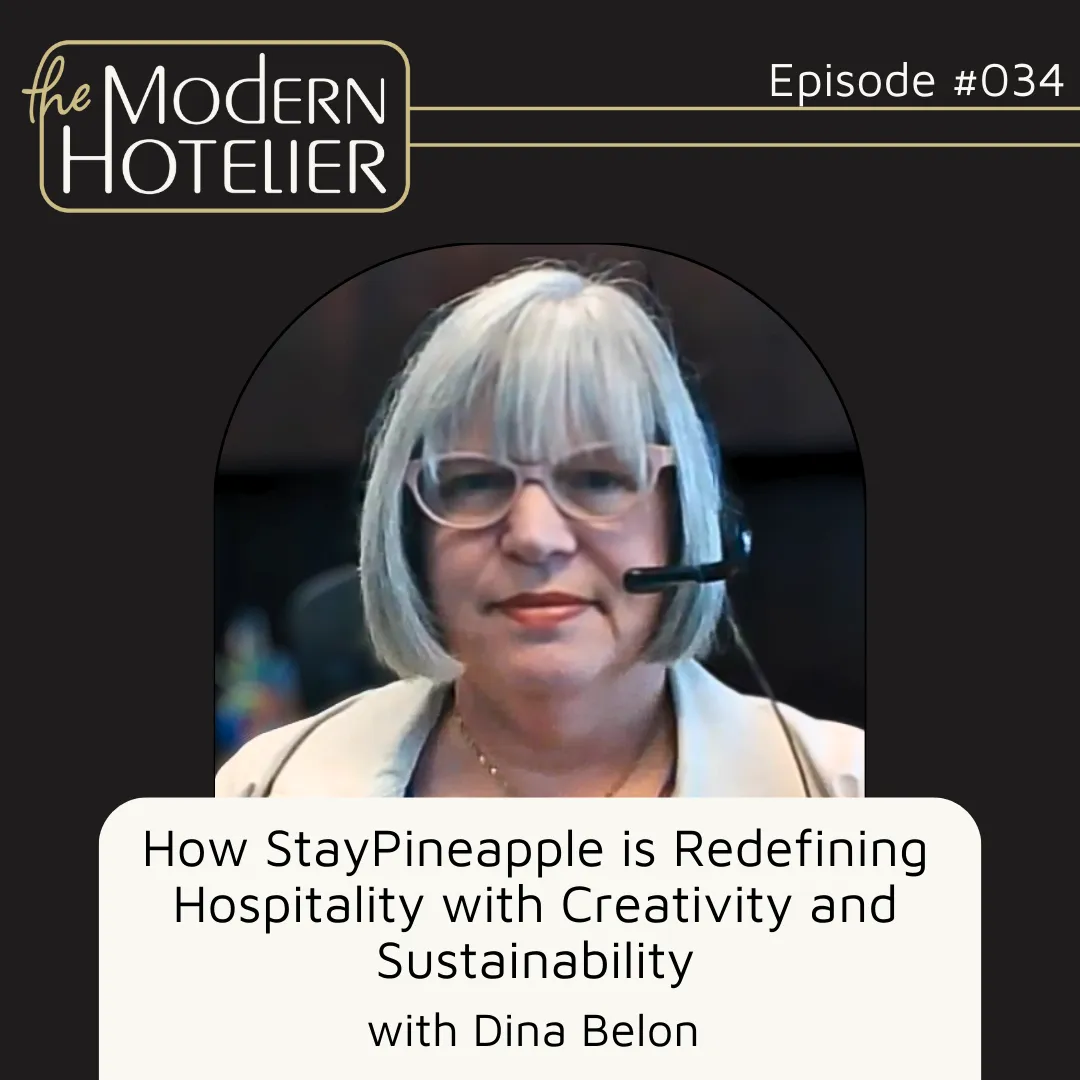In this episode, we speak with Dina Belon, the Chief Operating Officer at Staypineapple Hotels Inc. We dig into how StayPinapple's unique brand combines creativity, sustainability, and exceptional guest experiences to redefine hospitality.
In this episode, you'll discover:
• How StayPineapple is capitalizing on authenticity to create unique guest experiences
• How to get started with sustainability and build a green team
• How StayPineapple threw away the scripts to create an authentic culture
The Modern Hotelier is produced, edited, and published by Make More Media: https://makemore.media/
Episode Links
Dina Belon
David Millili
Steve Carran
Steve on LinkedIn
The Modern Hotelier
Transcript
Automatic Transcription - please excuse any errors

